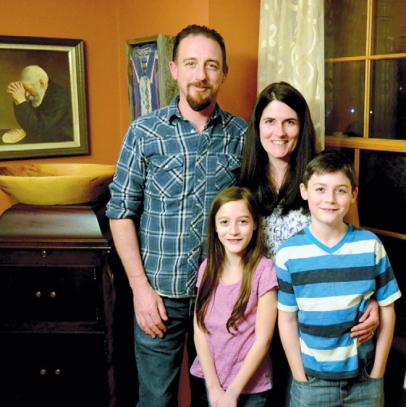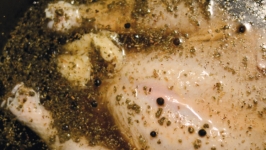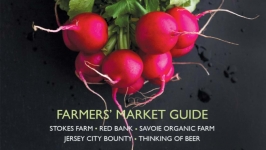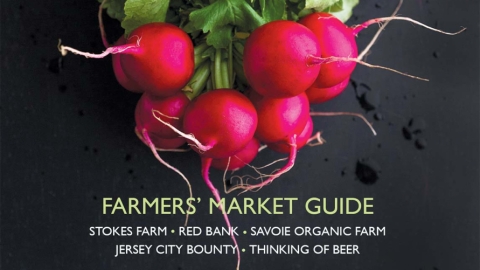When We Gather - Preserving Family Time at Savoie Organic Farm
Farm life evokes romantic visions: Tractor rides at dusk. Landscapes in the saturated tones of summer produce. A breeze always rustling the grasses.
The reality? Well, that’s a bit different.
Farming is sun-up, sun-down work. Everything is grit and grind, the kind that gets under the fingernails. Carving time for anything other than seeding, weeding, harvesting and marketing is a victory. Still, it makes one philosophical about the things that count: food, family, living a healthy life—and when you get those priorities right, it shows.
Genevieve (Gen) and Paul Savoie are kids, but they’re decisive. If you’re going to talk food and family, one dish rises above: pasta de oivo. The kids pronounce it just like their late maternal grandfather did: “Bas-de-OL.” It’s a riff on stracciatella, Italian egg drop soup, and “it’s our favorite,” Gen affirms.
That they have such a strong connection to the dish is a testament to their parents, organic farmers Carol and Barry Savoie. No matter how hectic life gets, no matter what the farm demands, they make time to gather around the table as a family. They do this even after long days in the field, sweat rolling down their backs. They do this even after endless hours spent harvesting for their CSA or selling at the Collingswood and Headhouse Farmers’ Markets.
“It’s important to Barry and me to carve out time for a family dinner because it’s the one time in our busy day that we can be fully present for each other,” Carol reflects. “I think a lot of that stems from the fact that we both grew up in families that sat down together every night.”
On summer nights, it may be pizza or stir-fried veggies eaten well after dark. Farming is often all-consuming. “We’re not real early bird people as far as meals,” Barry quips. Still, downtime with Gen and Paul is a treasured commodity—and as luck would have it, simple dishes live closest to the heart.
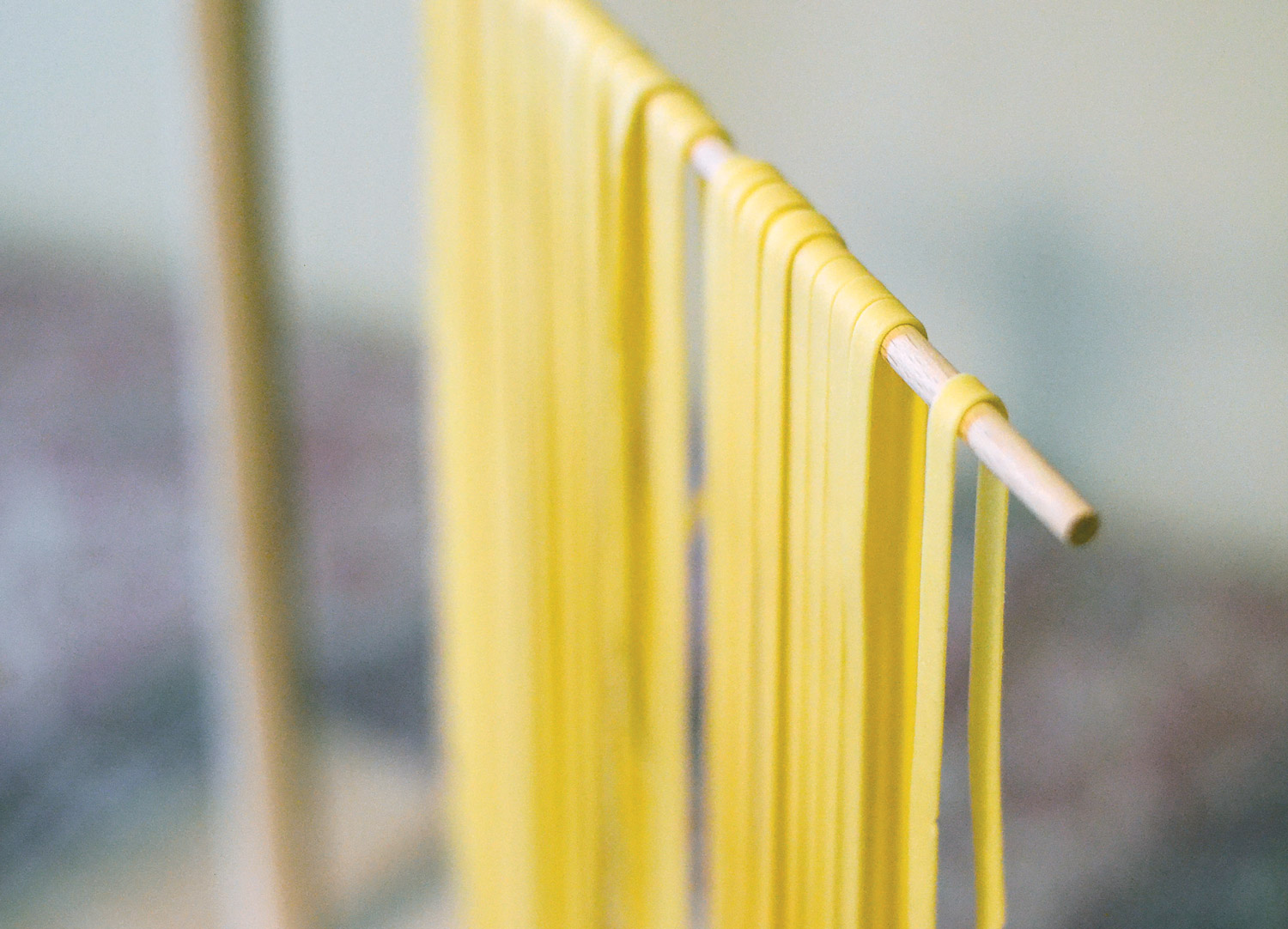
Barry and Carol make coffee in Aunt Rose’s 1940s percolator. Carol uses handwritten recipes that were found tucked in her aunt’s coat pockets. Along the way, the kids are being taught that cooking tells the family’s story.
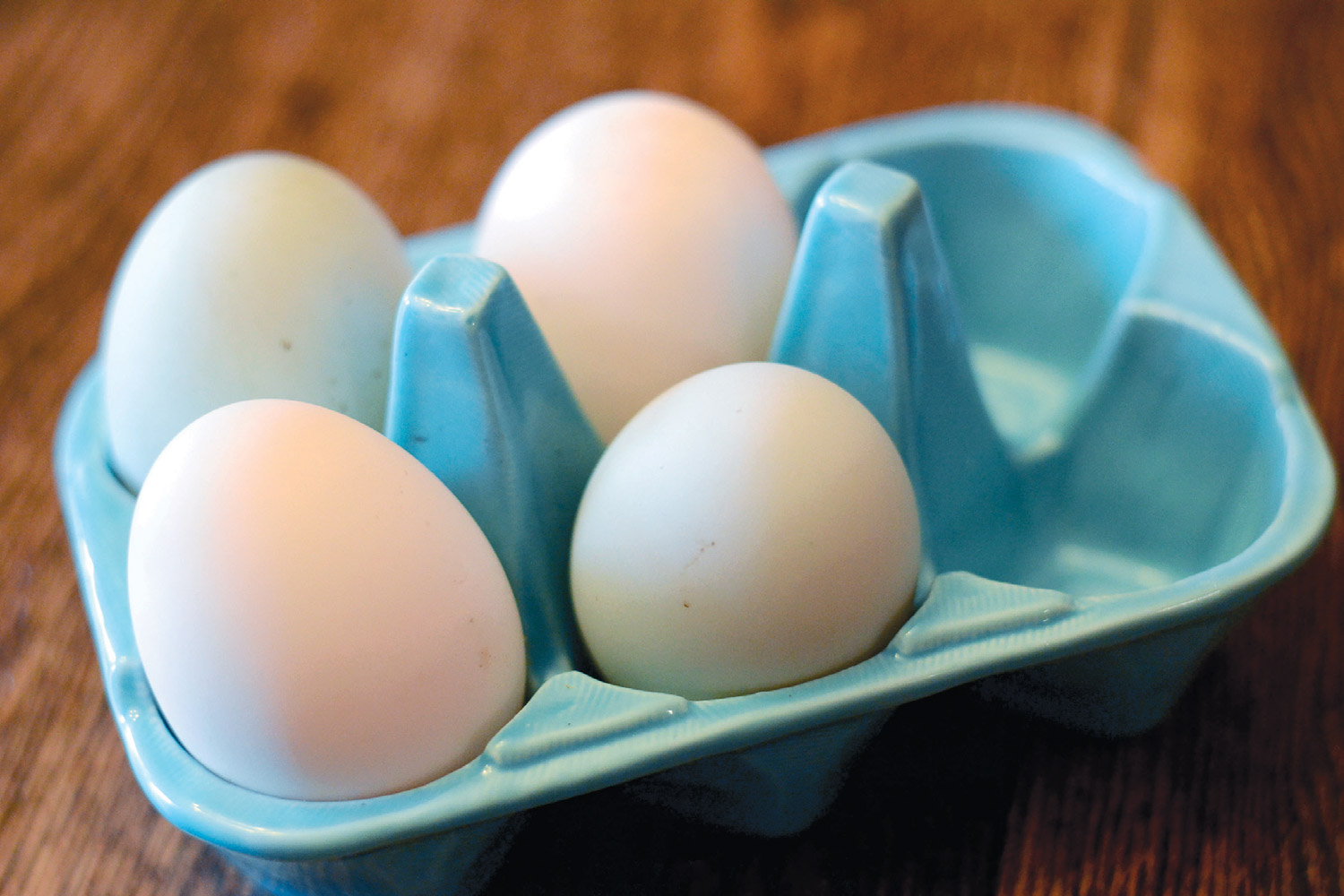
Pasta de oivo is archetypal poor-man’s food, the kind that stretches to fill hungry mouths. It was one of Carol’s father’s favorites when he was coming up in South Philly. “My grandmother was a single mom trying to raise five kids in the Great Depression,” she says. Pasta was chopped into one-inch pieces and boiled to al dente. A whipped egg and Pecorino-Romano was added to the water. Salt it, pepper it, and that’s that.
The recipe unlocks stories that get passed back and forth over steaming bowls. Take this one: As a boy in Depression-era Philly, Carol says, her dad played a game called Epper. Players cupped eggs in their hands, and one tapped the other with the pointed end. When a player’s egg cracked, the winner took it home. More than likely, it would find its way into a soup like this one.
For the preteen kids, those stories are a kind of magic. “They love making it. They love eating it,” Carol says of the soup.
Growing up on their Williamstown farm, on the same land where their mom was raised, Gen and Paul know where their food comes from, whether it’s venison Barry and Paul hunted or buttery lettuce greens picked just outside the door (one of Gen’s favorites). The kids tend rabbits in backyard pens. They eat Roma tomato gravy made just like Carol’s family always made it—if chunkier in a nod to the way Barry’s mom cooked on Michigan’s Upper Peninsula—and cellared for the winter.
It was actually water that brought Barry and Carol together. As a research scientist based in Oregon, Carol studied the microbiology of the ocean floor. “You know those deep-sea vents where the super-heated water bubbles up from the sea floor?” she asks. “I used to dive on those sites in a little white submersible.”
Up in Michigan, Barry’s family farmed cattle and Timothy hay good enough to feed the Budweiser Clydesdales. “I was throwing hay bales for farmers from the time I was 11 years old,” he says. Later, he served as a Naval submariner, running nuclear reactors. When decommissioning a sub, he arrived at the shipyard where Carol was working. The rest is Savoie history.
The pair moved on to Charleston. Barry was teaching at the Naval Nuclear Power Training Command, and Carol had an amazing post-doc position. Yet, a greater calling brought them back to Carol’s childhood home: Her parents were getting older.
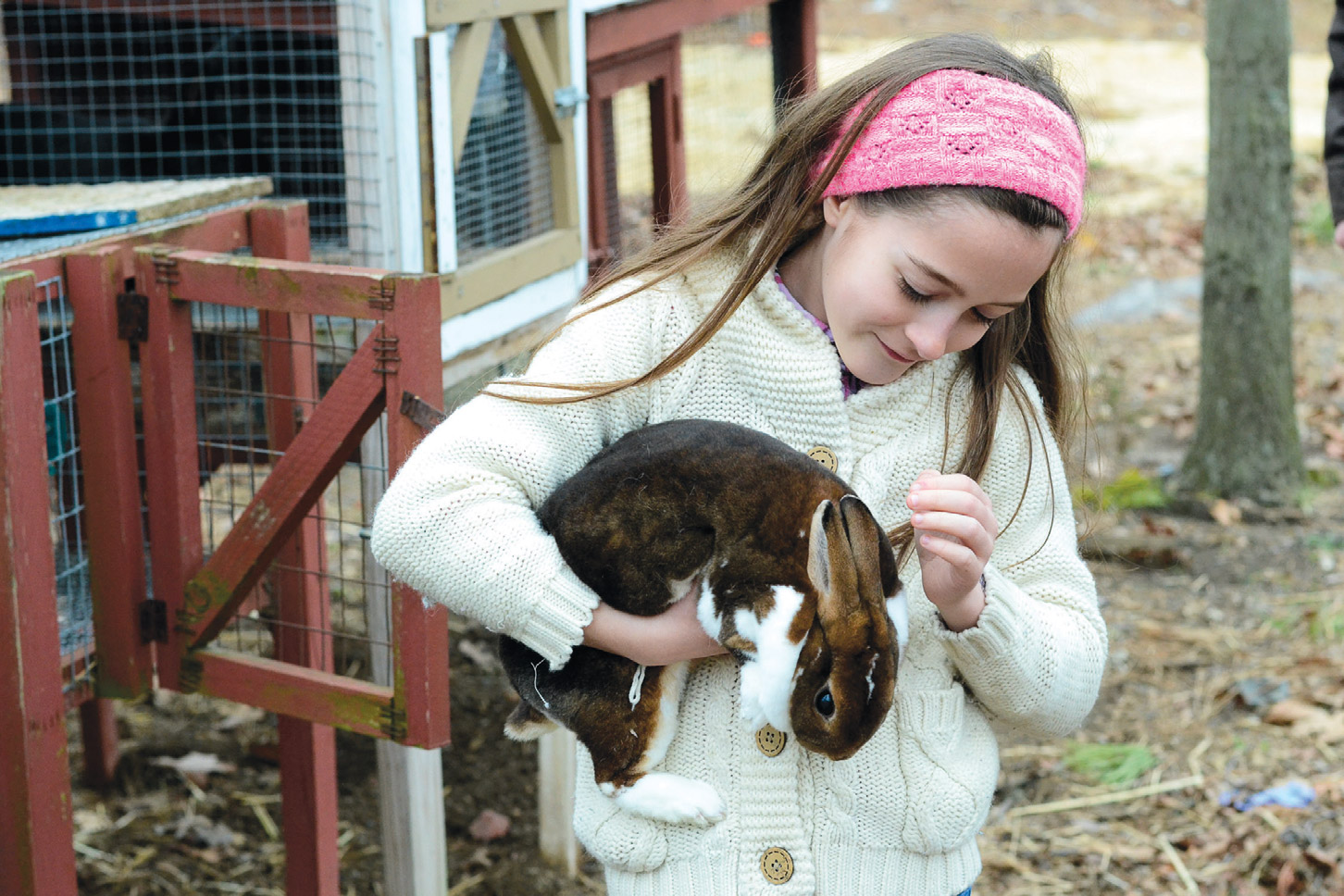
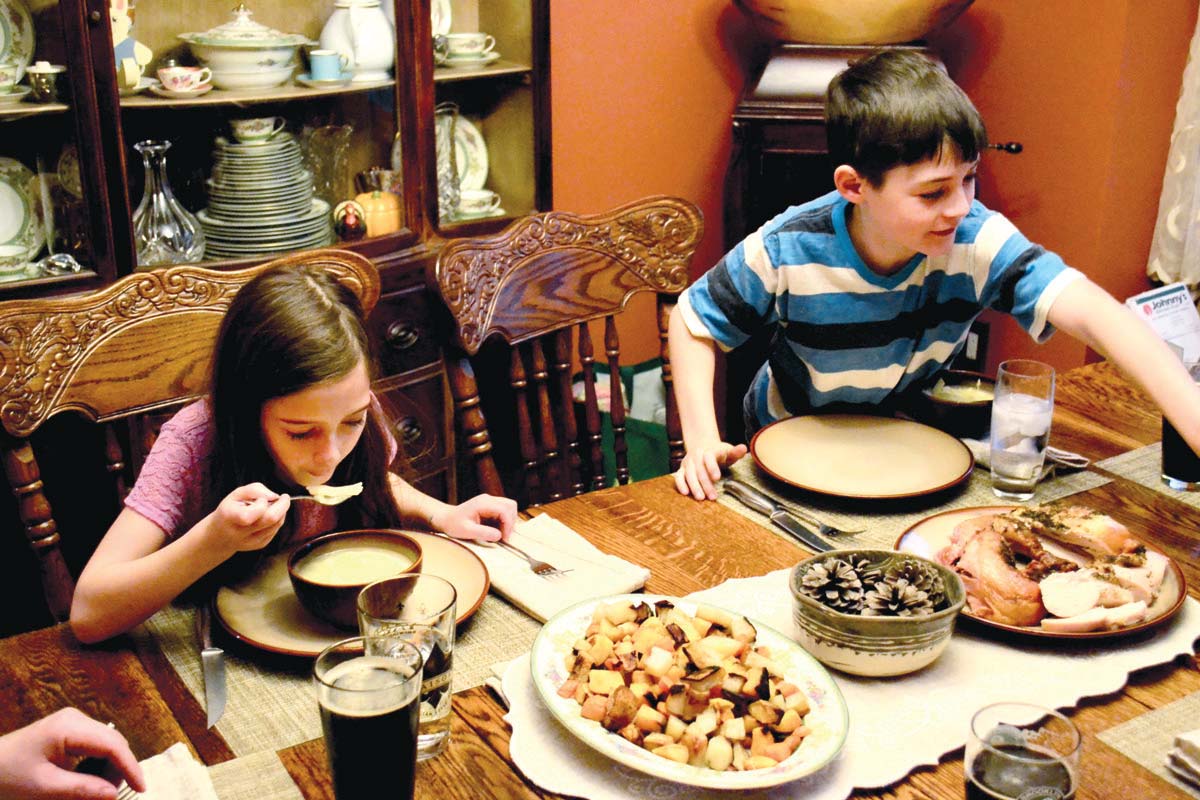
“Her mom was getting in bad health, and her dad was elderly— her dad was almost 25 years older than her mom,” Barry says. “He was 85 years old and still working 40 hours per week for health insurance for her. We were like, let’s just move back here to take care of them.”
The farm was supposed to be a hobby, a roadside stand for fun. “The farm was really just something to do,” Barry laughs. Now, it’s a full-time lifestyle that connects the family not only to their land, but also to the history embedded therein.
Growing up in the house next door to the farm, Carol was part of an extended Italian-American family. Her father purchased the farm in 1955, as good a place as any for a man from South Philly and his brothers to raise horses. “They were city boys,” Carol says. “They were playboys who loved horses and betting on the horse races. Though, they did have a small garden.”
“The whole family moved from South Philly to here. It was a clan thing. My Aunt Rose and her husband lived in the garage apartment, and then my grandmother and all of the other siblings lived in the main house.” Carol’s mom and namesake, though not Italian, learned to make the dishes her husband loved, but she brought her own dishes to the mix, too, like Welsh Miner’s cakes.
After her mom passed, and as her dad grew older, Carol took time to prepare food that evoked his roots. “I tried a coconut cream pie one time, for the first time,” she recalls. “It was one of those things where the first time I tried it, I nailed it and got this texture [my dad] recalled from childhood. He was like ‘Oh my gosh, this is just like I remembered.’”
Such fingerprints can still be found in the kitchen. Barry and Carol make coffee in Aunt Rose’s 1940s percolator. Carol uses handwritten recipes that were found tucked in her aunt’s pockets. Along the way, the kids are being taught that cooking tells the family’s story.
On a Sunday afternoon, Barry fires up the KitchenAid and teaches Gen how to make scratch fettuccini for a twist on pasta de oivo. Nearby, Carol preps a brined chicken to be roasted on the grill. Gen, it turns out, is a quick study. “Ever since she was two years old, the minute I would start cooking, I would hear the chair coming over to the counter,” Carol says.
“I think my job when I get older will be a cook—a chef,” Gen says. She already bakes a mean scratch biscuit.
Over the pasta attachment’s whir, Barry shows Gen how to feed dough through once and again to achieve the right thickness. He explains how to gauge progress by feel. Then he lets Gen take over. A mix of half soft wheat, half durum flour creates great texture and a dough that’s easy to work, Gen learns. It’s simple to add water and hard to bounce back if you add too much. Fresh duck eggs from one of the 60 or so birds out back are brought to room temperature before they’re dropped into the stock pot.
Carol watches. “My dad used to come for every birthday dinner, and he was like, ‘Why are we eating bas-de-OL, isn’t this a special occasion?’” Carol smiles. “So many kids do not have this opportunity.”
In the dining room, later, the chicken is carved and soup is ladled. The family falls temporarily quiet as steam rises from their bowls. “I’m so grateful that my dad had this land and that we were able to do this,” Carol says. “That’s a big blessing.” Tasting her dad’s soup, she smiles. “Gen always jokes that it’s good because we put our love in it. That is what it is. She totally gets it.”
Outside, it has already grown dark, but the family lingers on at the table.
Savoie Organic Farm, based in Williamstown, will be on-site at the weekly Collingswood and Ocean City farmers’ markets in NJ this year as well as the Oculus Plaza Greenmarket in NYC and the Headhouse market in Philadelphia. SavoieOrganicFarm.com


